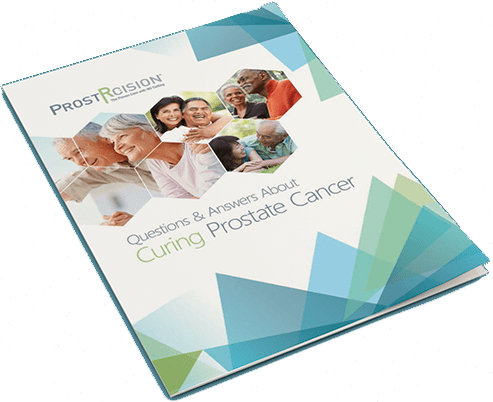
The recurrence of prostate cancer means that the cancer has come back after being treated. The likelihood of prostate cancer recurrence depends on many factors, including the aggressiveness of your original diagnosis. Research indicates that between 20-30% of men will experience prostate cancer recurrence following the five-year mark of their treatment.
Prostate cancer may return if all prostate cancer cells are not removed or destroyed during initial treatment. Microscopic capsule penetration of prostate cancer cells may have occurred prior to treatment, and during treatment, these prostate cancer cells were not destroyed.
The best thing that you can do for your health following a prostate cancer diagnosis is to make sure that you follow the care plan put in place by your cancer care team. This means attending all of your follow up appointments, doing any additional testing that is requested, and making any necessary lifestyle changes that may reduce your risk of recurrence. While you certainly can’t control whether or not your prostate cancer returns, following your care plan could mean that recurrence is caught as quickly as possible and additional treatment is put in place.
The average time for recurrence of prostate cancer is 2 ½ – 3 years after your initial treatment. While this is the average time for recurrence, each person is different. You can have a recurrence immediately after treatment, or it can recur many years later, even more than ten years after treatment.
It’s important to know that even by making healthy lifestyle changes, there is no guarantee that your prostate cancer won’t return. However, there are some things that may help reduce your risk. Lifestyle changes such as eating a healthy diet, maintaining a healthy weight, participating in regular physical activity, and following your prostate cancer follow-up care plan can all be helpful things that you do for yourself.
There are some studies that suggest that certain foods can slow the growth of prostate cancer or reduce the chances of it returning. However, this research isn’t extensive, and other studies contradict those findings. The important thing to remember is that you should consume a balanced and healthy diet. Speak with your doctor about specific diet changes that may be beneficial to you.
It’s normal for prostate cancer survivors to have some worry about recurrence. The best thing you can do for your health is to be proactive by following a healthy lifestyle and consult with your medical team right away if you notice any symptoms that could mean a serious issue for your health. Symptoms to watch out for can include the return of cancer symptoms you previously experienced, sudden weight loss, unusual pain, chills or fever, bloody stool or blood in your urine, persistent cough, or any other symptoms that your cancer team has asked you to watch out for during your recovery.
If you find that you’re constantly thinking about it, talk to a counselor, the social worker at your oncology practice, or another trusted person such as clergy, a close friend or a support group.
If treatment for recurrent prostate cancer isn’t curing it, there are options for controlling it. Most men with recurrence will eventually need hormone treatment to try to control their prostate cancer. Keep in mind, while hormones can help manage prostate cancer, it is not a cure. Ultimately, one of every three men with recurrence dies because of their prostate cancer. Obviously, if a man is cured, none of this happens.
In order for your prostate cancer to be considered medically cured, your PSA must be zero for at least 10 years. Most recurrences (75%) occur in the first five years after treatment, but 25% occur after five years, including 5% after ten years. Over 99.5% of recurrences occur by 15 years after treatment. So, we use 10 years as the standard time to see if a man has a zero PSA. However, a rare patient can have a recurrence after 10 years.

Make an informed prostate cancer treatment decision. Our 40-page, comprehensive guidebook provides answers to our most frequently asked questions from men diagnosed with prostate cancer, and compares various treatment methods, cure rates and side effects. Our team can also connect you with one of our oncologists at no cost.
Advanced prostate cancer, also called metastatic cancer, occurs when a tumor develops in an area of the body outside of the prostate. The cancer cells are still considered prostate cancer and treated that way. The most common sites of prostate cancer spread are to the lymph nodes and bones. Prostate cancer can be advanced when it's first diagnosed or it can be advanced if the cancer recurs after treatment is complete.
Quickly and efficiently build the materials you need to support your inbound marketing strategy. Drag and drop building blocks including testimonials, forms, calls-to-action, and more.